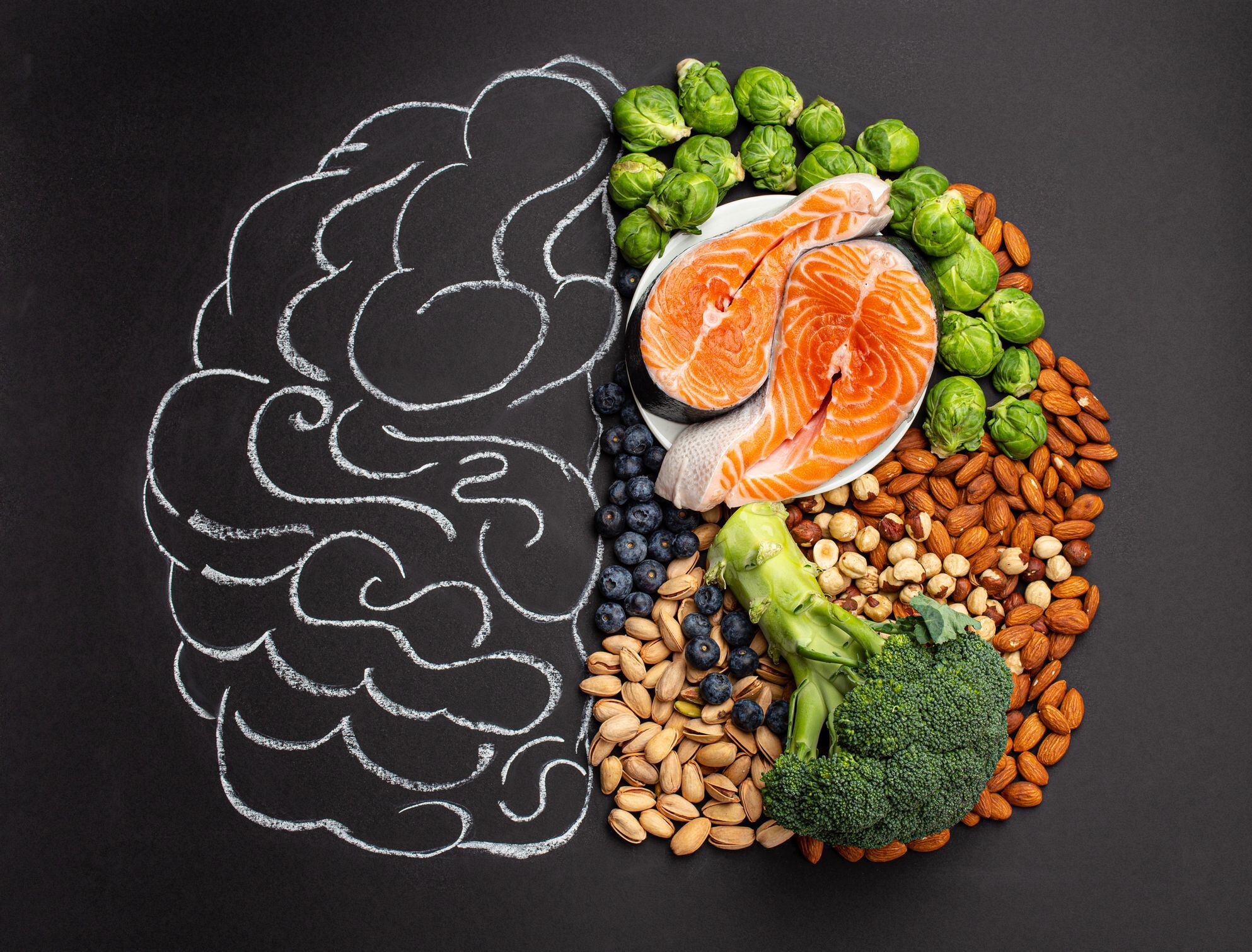Live to 100
When I mention I’d like to live to 100, people turn their heads. I believe that’s because most of them think there is no way to live an independent and vibrant life that long. Nobody wants to get there without health, me neither! However, it’s possible to keep your brain young and your body functional. Of course, we can’t stop aging on the outside but if you want to be there for your kids, grandkids, and grand-grandkids for as long as possible, rest assured there is a way. The choices we make every day can define how well and how long we can live.
Neurogenesis
A few decades ago, common wisdom held that once you reached adulthood, your brain was done developing and maturing. Thankfully an emerging field of genetic research has shown that our brains are fully capable of change across the lifespan. The process by which new neurons are created is called Neurogenesis, which plays a crucial role in brain development and function, as well as in learning, memory, and overall brain health.
Brain Function
As we grow older, our bodies undergo several physiological changes that can impact our physical and mental health. The decline in neurogenesis, for instance, has been linked to various cognitive impairments such as memory loss, reduced learning ability, and slower information processing speeds. However, if we can stimulate neurogenesis that would help the brain continually adapt and change over time. Better yet, we can eradicate neurodegenerative diseases like Parkinson’s and Alzheimer’s.
Neurogenesis Inhibitors
Research has shown that there’s a decline in neurogenesis with advancing age, which relates to the cognitive decay seen in many elderly. The other two main new neuron inhibitors are Environment and Stress. Constant exposure to environmental toxins and or air pollution can impair neurogenesis directly or indirectly through their effects on immunity or inflammation levels. The same effects are caused by chronic stress.
Neurogenesis Stimulants
While it’s natural for certain brain functions to worsen with age, there are ways to slow down the decline of neurogenesis. The good news is those are lifestyle changes, basically, choices we can make every day.
Regular Exercise – Studies have shown that regular exercise increases levels of brain-derived neurotrophic factor (BDNF), a protein that promotes the survival and growth of new neurons. Exercise also helps improve blood flow to the brain, which provides essential nutrients and oxygen necessary for neuronal growth.
I have been exercising 5-6 days a week for a while. When I can’t go to the studio, I practice yoga at home. Between running, walking, biking, and yoga I fill up my physical activity calendar.
Mental Exercise – Challenging your brain with activities such as puzzles, sudoku, and learning new things like a language, an instrument, or a sport may help to promote neurogenesis. Like a muscle – the more you use your brain, the stronger it gets.
I love puzzles but they’re kind of addictive to me. To sharpen my brain, I bought Jim Kiwik‘s book Limitless and I’m doing his exercises.
Adequate Sleep – Rest plays a vital role in brain function. During sleep, the brain consolidates memories, detoxifies, and does neuronal repair. Chronic lack of sleep leads to irreversible loss of brain cells and also increases the brain plaque believed to contribute to memory loss and Alzheimer’s disease.
Since my teens, I take very good care of my sleeping schedule. A minimum of eight hours per night is a must for me. To take advantage of all the benefits of a restorative night’s sleep, my goal is to have my eyes shut by 10 pm.
Stress Management – Intense stress may decrease levels of BDNF and hinder neurogenesis. Finding healthy ways to cope with stress – such as consistent physical activity, spending time in nature, doing breathwork, meditation, hugging your loved ones or even petting a pet – can help promote new neuronal growth.
Grounding, breathwork, and meditation have been part of my morning routine for more than a year now. My loyal companion Sherlock helps me get through my down days. Recently I got another helper – my daughter’s cat, Oreo, who is always on my lap.
Nutrition – During the last decade, there has been a steady increase in research into how diet affects mental health. The brain alone consumes 20% of everything we eat. The foods we consume provide the energy and nutrients to produce and support each element that makes up our brains. Although overall diet has an impact on the brain’s health, specific foods support its development and maintenance in a variety of ways.
Key Nutrients for the Brain
Omega-3 Fatty Acids – These healthy fats are essential for maintaining cognitive function and promoting neurogenesis. They can be found in seafood such as oysters, salmon, sardines, and tuna, as well as in nuts and seeds like walnuts, flaxseeds, and chia seeds.
Although seafood is not always on my plate, I make sure to hyper-nourish on nuts and seeds. My 5-weekday breakfast is overnight oats with chia, which I make with kefir, lemon juice, and honey, and top with blueberries and walnuts (recipe in my e-book!). My favorite salad toppings are pepitas and sunflower kernels. Every time I’m baking or making a shake, I toss in some freshly grinded flaxseeds, and nuts with fruit are my go-to snack.
Antioxidants – These powerful compounds help protect against oxidative stress, which can damage cells in the body and brain. Foods rich in antioxidants include dark leafy greens like spinach and kale, and colorful (rainbow) fruits and vegetables.
Salad is my first-course meal most of the time. It consists of a generous bed of different leafy greens with a variety of colorful veggies and fruits. Usually, I have tomatoes, carrots, cucumbers, avocado, olives, and beets tossed over the greens. Then I take turns adding quinoa, lentils, or chickpeas as well. This is the best way I found to eat the rainbow.
B Vitamins – Four out of eight of the B-complex vitamins are essential for energy and neurotransmitter production, as well as for making mood-regulating molecules in the brain. Foods rich in these vitamins include legumes (beans, lentils, chickpeas), leafy greens (spinach, kale, collard greens), eggs, and lean meats (chicken, turkey).
My diet doesn’t include meat anymore so, I try to have one legume in every meal. Also, I make my kefir at home with organic, pasture-raised whole cow’s milk to guarantee good quality, low lactose & casein dairy in my daily menu.
Curcumin – This compound, found in the spice turmeric, has anti-inflammatory and antioxidant properties, which can help protect against cognitive decline. Research shows that curcumin can promote neurogenesis and may even improve memory and attention.
Cinnamon and turmeric are the two anti-inflammatory spices I add to my daily overnight oats. I’ve also found out cinnamon goes well with Greek yogurt and fruit salad. Turmeric is also a good seasoning for chicken, meat, soups, and rice.
Green Tea – This beverage is rich in polyphenols, an antioxidant that may help promote cognitive sharpness and neurogenesis. Regular consumption of green tea may reduce the risk of developing serious memory issues.
After water, coffee is my beverage of choice. However, after learning about all the health benefits of green tea, I decided to try it. So, on weekdays, I swap my cup of coffee with green tea. To maximize the tea’s benefits, I add pieces of lemon and ginger. Green tea is part of my morning routine now.
Common Pattern
In addition to incorporating these brain-boosting nutrients into your diet, it’s important to limit processed foods, sugar, and alcohol intake. You might have noticed a pattern in all the recommendations for different health and well-being issues. That’s true! There is no secret – keeping your body well-nourished can help support not only brain health but also your overall health and well-being. With the perk of potentially slowing down the aging process.
Now you know it’s possible to keep your brain young. There is a clear path you can take but, it’s easier said than done! Just take one step at a time. It’s about progress, not perfection. If you need help, reach out to me. I’ll be honored to help you.
After all: Good is what makes you feel well!
Anna.
Find a brain-friendly recipe on Eat for Your Brain.

Anna Resende
Integrative Nutrition Health Coach
Certified by IIN - Institute for Integrative Nutrition
Every week I send out my newsletter called Mamma’s Tips where I share health and wellness topics, good books, recipes, and more.
Click below to subscribe!
I’m excited to share that I just published my first e-book
A Weekend of Feeling Great!

In this book, you’ll find all the steps you can take to feel great. Besides all the foundational principles of multidimensional health, it has a sample of a productive daily routine and a two-day menu with 10 healthy recipes for you to try.




